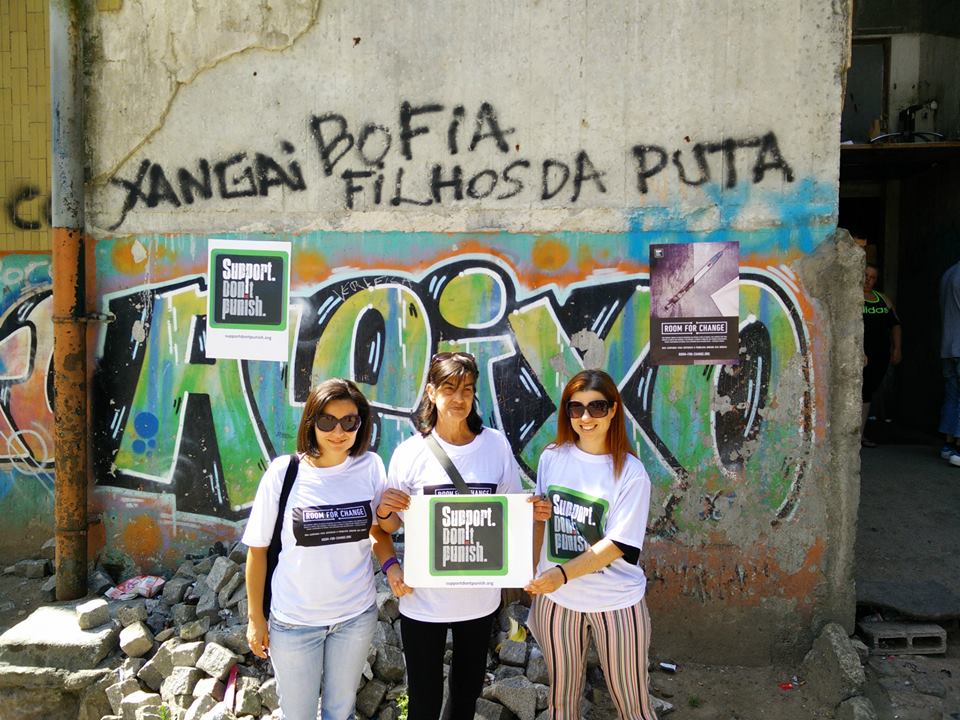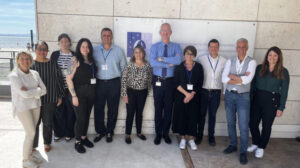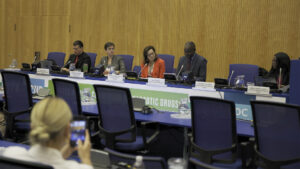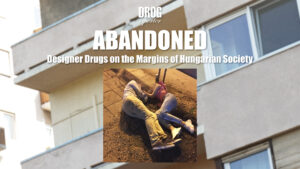Read about the great example of how the civil sphere of Portugal is joining forces to convince the authorities and public service providers to take harm reduction related to drug use seriously.
In Porto, a number of types of drug use tend to take place in “open drug scenes”, next to residential buildings, with inadequate hygiene conditions, and with paraphernalia scattered on the floor. Some users collect used syringes/needles from such open drug scenes, and exchange them at Harm Reduction (HR) (Note – throughout this article, 'HR' is used as a convenient abbreviation for 'Harm Reduction'. Other abbreviations/acronyms are listed at the end of the text.) mobile units. There are no public telephones in these places, which means that users are unable to call emergency services, in an overdose situation. In addition, in Portugal, hospitals are the only facilities which provide medical supplies which can prevent overdose deaths.
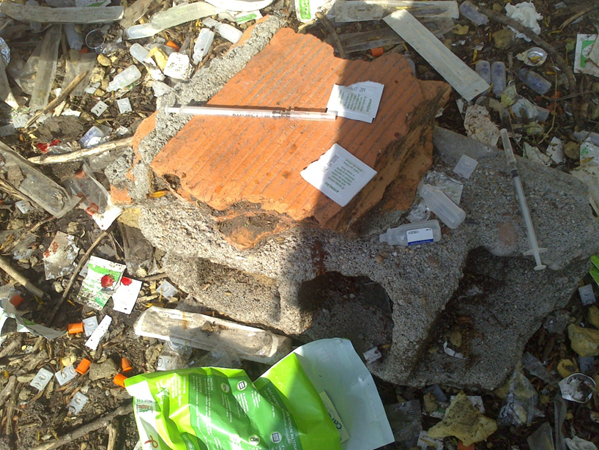
There are still, however, several obstacles to the implementation of a drug consumption room (DCR) in Portugal. Interventions by APDES, CASO, SAOM, Arrimo, and Norte Vida ,as well as by the local community, have identified a need to establish this specific response, just as the law, since 2000, provides.
On 30th April 2015, APDES promoted an event where the emerging need for DCRs was widely discussed – a forum entitled Consumption Spaces, Shelter Spaces: Absences and Emergencies. The event was held in the Salão Nobre of the Court of Appeal. Approximately 140 people attended, including experts from a number of fields (research, community-based intervention, public health, politics, law, the police, and public safety activists), and there was also some peer-involvement in the event. The debate began after opening speeches from the President of the Court of Appeal, José Lameira,, Alina Santos (representing the APDES Executive Board), and the Councilman for Social Housing and Action, Manuel Pizarro.
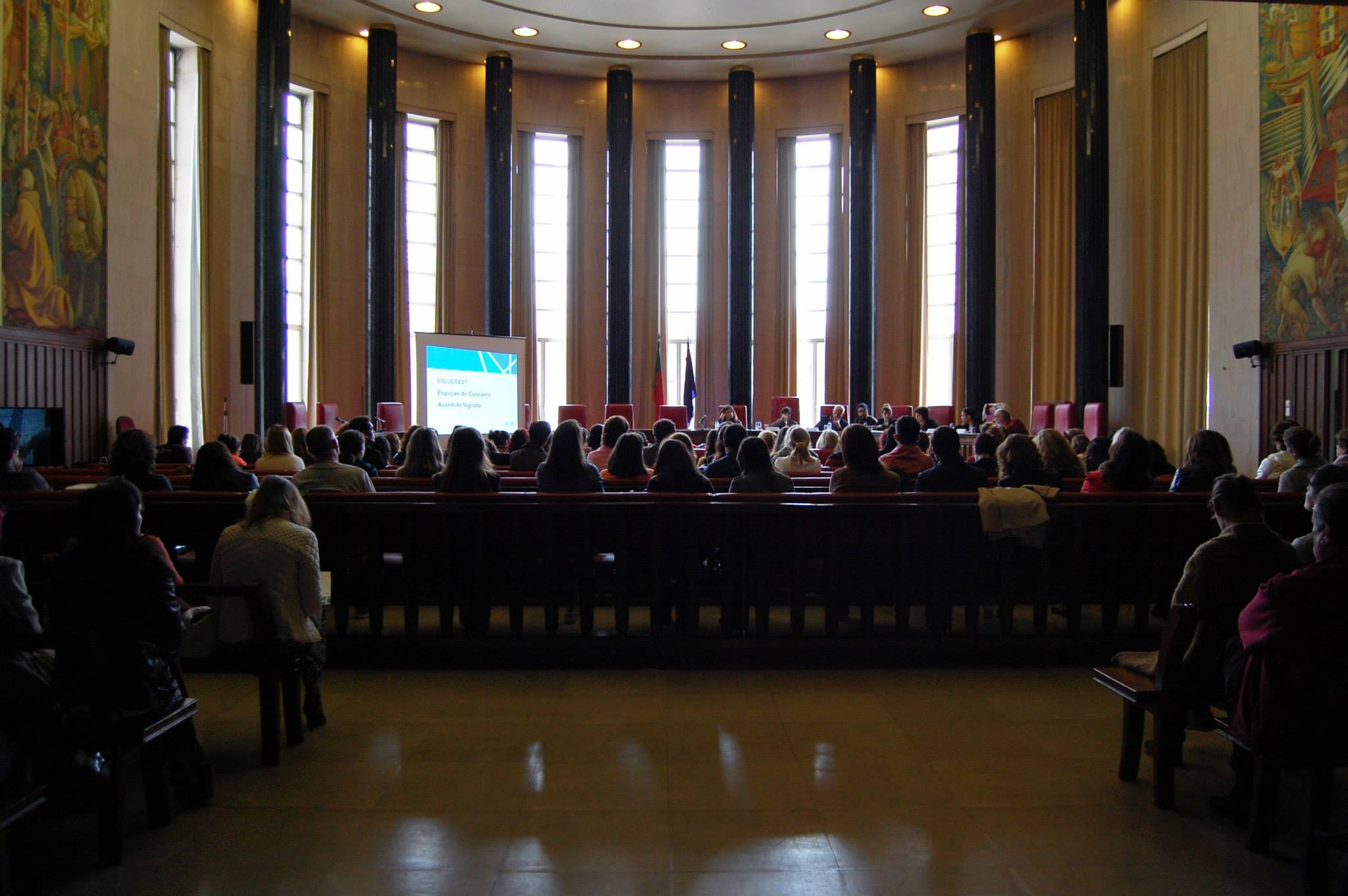 The first session, called Consumption Spaces, focussed on humanitarian and public health issues directly linked to the drugs phenomenon in Porto. Joana Vilares and Susana Peixoto (APDES HR team coordinators) pointed out the importance of creating DCRs as a harm reduction (HR) response, by presenting a diagnosis made “in loco”. According to official data from the HR services contacted, there are close to 3,400 users of heroin/cocaine, with 1,600 of them using intravenously. Almost 430,000 needles have been exchanged, at an estimated average of 1,200 per day. In 2013, 11% of the individuals in treatment facilities were infected with HIV, and 26% with Hepatitis C. During the same year, 119 new cases of TB were diagnosed, drug use being the second-highest risk factor (PNVIH, 2014). Eberhard Schatz, (Correlation Network), Xavier Majó Roca from Dirección General de Salut Publica da Catalunya and Marta Pinto, a researcher with RECI/APDES/FPCEUP, presented promising data related to DCRs and their impact on the effort to reduce the incidence of diseases and death due to overdose. Also, DCRs were cited as a way of increasing the number of individuals referred to treatment and social care, and as places which afford the drug user a measure of dignity. Some of the main ideas coming out of this round-table discussion were: “It’s better to fall with a parachute than without it”, and “In order to treat them, they need to be alive”. Isabel Ponte (CRICAD) emphasised HR approaches and the need to reinforce them.
The first session, called Consumption Spaces, focussed on humanitarian and public health issues directly linked to the drugs phenomenon in Porto. Joana Vilares and Susana Peixoto (APDES HR team coordinators) pointed out the importance of creating DCRs as a harm reduction (HR) response, by presenting a diagnosis made “in loco”. According to official data from the HR services contacted, there are close to 3,400 users of heroin/cocaine, with 1,600 of them using intravenously. Almost 430,000 needles have been exchanged, at an estimated average of 1,200 per day. In 2013, 11% of the individuals in treatment facilities were infected with HIV, and 26% with Hepatitis C. During the same year, 119 new cases of TB were diagnosed, drug use being the second-highest risk factor (PNVIH, 2014). Eberhard Schatz, (Correlation Network), Xavier Majó Roca from Dirección General de Salut Publica da Catalunya and Marta Pinto, a researcher with RECI/APDES/FPCEUP, presented promising data related to DCRs and their impact on the effort to reduce the incidence of diseases and death due to overdose. Also, DCRs were cited as a way of increasing the number of individuals referred to treatment and social care, and as places which afford the drug user a measure of dignity. Some of the main ideas coming out of this round-table discussion were: “It’s better to fall with a parachute than without it”, and “In order to treat them, they need to be alive”. Isabel Ponte (CRICAD) emphasised HR approaches and the need to reinforce them.
Sign our Petition and demand Safe Rooms across the European Union:
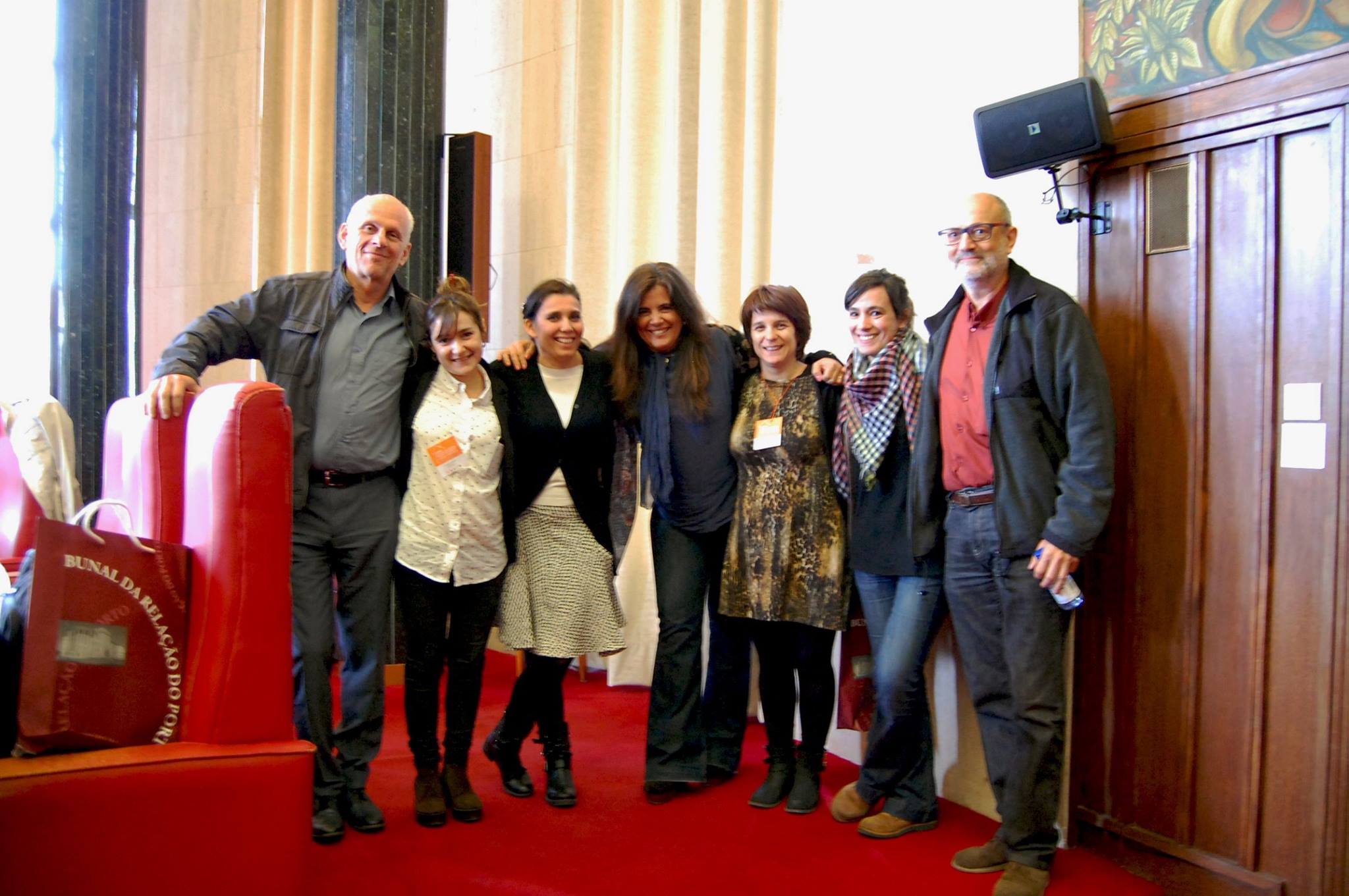 Later, while addressing Inclusiveness Policies, Henrique Barros (President of ISPUP), emphasised the need to create DCRs as an effective strategy to reduce the risks associated with drug use. He mentioned that, “Even if there was only one case, it would still be a public humanitarian and healthcare issue.” Focussing on the need to save lives, GAT President Luís Mendão said that outreach teams, as a result of the lack of DCRs, still don´t have access to vital resources; APDES CEO José Queiroz, emphasised the diagnosis initially presented, by pointing to evidence showing the need.
Later, while addressing Inclusiveness Policies, Henrique Barros (President of ISPUP), emphasised the need to create DCRs as an effective strategy to reduce the risks associated with drug use. He mentioned that, “Even if there was only one case, it would still be a public humanitarian and healthcare issue.” Focussing on the need to save lives, GAT President Luís Mendão said that outreach teams, as a result of the lack of DCRs, still don´t have access to vital resources; APDES CEO José Queiroz, emphasised the diagnosis initially presented, by pointing to evidence showing the need.
The closing session was carried out by activists and peers: Maria João Bráz (GAT), Rui Coimbra (CASO) and La Salete Miranda from Movimento Uma vida com a Arte. They highlighted the importance, within HR, of peer-based interventions (in the context of assisted drug use) to the health of drug users. They also mentioned the hypocrisy implicit in the Portuguese law, since services of this kind are legal, but aren´t yet implemented; and they also pointed out the need to get support for homeless people onto the political agenda.
APDES Coordination Council member, Cláudia Rodrigues concluded the round-table discussion, by referring to the absence of inclusive strategies and social plans. She stressed the need for alternative actions and responses that affirm themselves and show their importance to society.
Tiago Teixeira, an nfectious diseases expert from V.N.Gaia/Espinho Hospital and HR team GIRUGaia (APDES), mentioned the squalid conditions he has seen during his field work, as well as situations related to HIV, TB, hepatitis, and septicaemia. Soon after the forum, he published an article in the newspaper Público (7th June, 2015) called “Drug Consumption Rooms: a humanitarian emergency in Porto City”. As a conclusion to this advocacy event, we quote him here, since he effectively sums up the need to resolve this humanitarian issue:
“Although Portugal has an innovative legal framework (under law 30/2000), and drug use has long been decriminalised, outreach teams still face obstacles stemming from a system which promotes an overly repressive and legalistic vision (…) However, it seems as if we’ve closed our eyes. In other words, we provide sterilised needles, but we also appear to allow drug users to consume in miserable human conditions, far from public spaces.(…) there is an urgent need for us to discuss the implementation of drug consumption rooms (DCRs), so they can function as a valid outreach solution: they facilitate contact with vulnerable populations, decrease the risk of infectious diseases and overdose-related deaths, allow the development of ongoing healthcare education, and promote access to the full range of social and healthcare services, as well as to treatment responses (…) Advocating for DCR is not just a matter of ideology: It is a matter of best practice in public health (…).This approach can be seen in multiple programs already operating in Australia, Canada, Germany, Luxembourg, Holland, Norway, Spain, and Switzerland. Advocating for DCR is a human rights question – a question, in fact, of the most basic right of all: respect and protection for people’s dignity, especially those who live in vulnerable conditions. It is a humanitarian emergency in the city of Porto!”
It’s also important to mention that on 6th June, 2015, the newspaper Expresso published an article about the Portuguese General Directorate for Intervention on Addictive Behaviours and Dependencies (SICAD) and the intention, expressed by the Regional Administration of Health, of opening a DCR in Lisbon. The location of this DCR, which had previously been agreed, is currently under discussion. João Goulão (SICAD) stated that the project “has gained new momentum” and that “it will probably open this year”. João Afonso, a city councillor, stated that the DCR “is vital, in terms of putting an end to open drug scenes” and that “the legal framework provides the technical and financial preconditions to help this project move forward”. Pedro Delgado Alves, president of Lumiar’s Parish Council, affirmed that “this is not a taboo or controversial topic”; he also mentioned, however, that “in order for it to be accepted, local residents and partners must be involved in the project.”
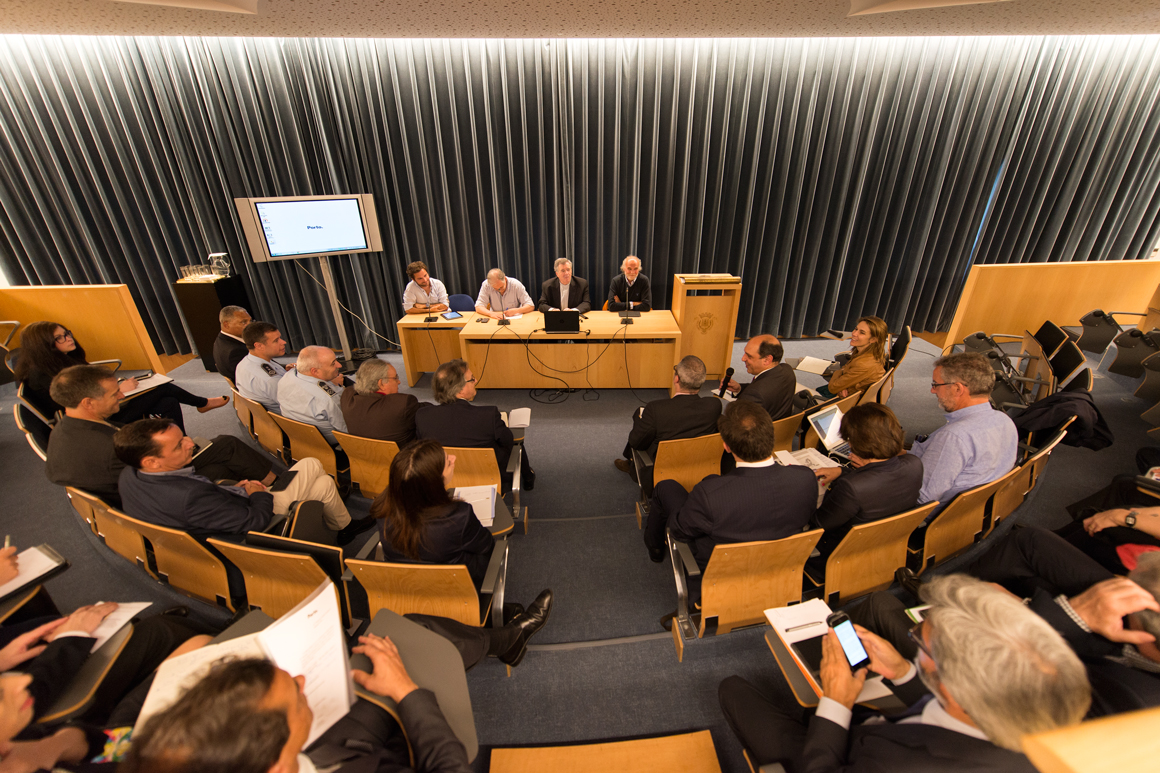 Another essential outcome took the form of a meeting held by the Security Council of Porto’s City Hall to discuss municipal policies to counter drug addiction. The meeting took place on 16th June, 2015, and Manuel Sampaio Pimentel, councilman for Citizen Oversight and Protection, and Manuel Pizarro, councilman for Social Housing and Intervention, participated in it. Others with relevant experience in the field of urban security were also present.
Another essential outcome took the form of a meeting held by the Security Council of Porto’s City Hall to discuss municipal policies to counter drug addiction. The meeting took place on 16th June, 2015, and Manuel Sampaio Pimentel, councilman for Citizen Oversight and Protection, and Manuel Pizarro, councilman for Social Housing and Intervention, participated in it. Others with relevant experience in the field of urban security were also present.
More recently, we have aimed to relate the knowledge and conclusions gained from previous events, to the street context. This opportunity was presented to us on 26th June: APDES and CASO joined the “Support. Don’t Punish” global movement and the European campaign, “Room for Change”, by organising an awareness action which started outside the Porto Town Hall at 9:30.
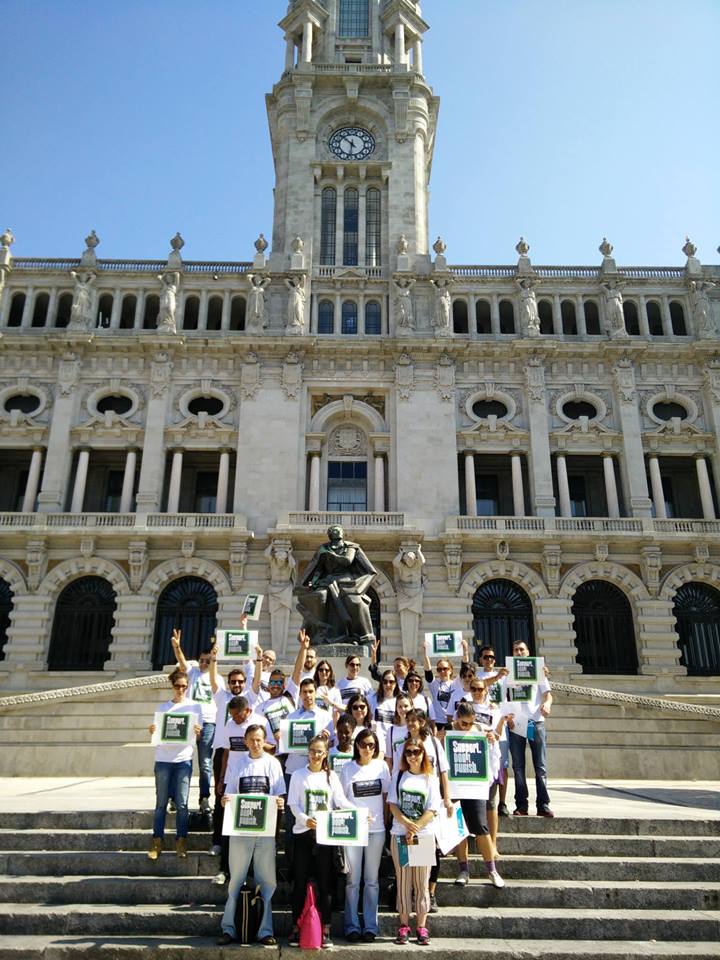 Nine teams of citizens, both users and professionals, walked around the city all morning, visiting public institutions which have symbolic importance in the lives of people who use drugs – the Hqs of four political parties, police precincts, the Porto Court of Appeal, a treatment centre, a hospital, and an area frequently used for drug consumption. Participants had the task of calling on the main stakeholders within hospitals, courthouses, rehab centres, and political parties, to join both campaigns.
Nine teams of citizens, both users and professionals, walked around the city all morning, visiting public institutions which have symbolic importance in the lives of people who use drugs – the Hqs of four political parties, police precincts, the Porto Court of Appeal, a treatment centre, a hospital, and an area frequently used for drug consumption. Participants had the task of calling on the main stakeholders within hospitals, courthouses, rehab centres, and political parties, to join both campaigns.
This public awareness-raising action was carried out all over the city, in search of a dialogue on the importance of more humane drug policies.
The way the campaign was received varied according to the different political parties. At the headquarters of the Government’s party, there was no representative available to meet us, but the person we talked to agreed to pass on the information on the campaign. Representatives of the opposition parties (left and centre-left wing) showed an interest in the campaign, and identified with its concepts and claims.
We contacted several healthcare professionals to discuss the relevance of the theme: Since drug use issue is a humanitarian and public health question, we pointed out the need for the establishment of a DCR that provides health and social responses, with a more comprehensive and humane approach. Despite the pragmatic nature of HR approaches (based on scientific evidence, promoting access to dignified conditions) there are still some professionals working with drug users who tend to resist interventions such as DCRs. For this reason, it remains a priority to provide training for these professionals.
 We also visited several police precincts, in order to convey the campaign’s message. Despite some initial resistance, we were able to talk with a Superintendent who acknowledged the importance of this issue in legal terms, and its impact on policing, as well as on the lives of drug users. This was also an opinion shared by the legal representatives we talked to.
We also visited several police precincts, in order to convey the campaign’s message. Despite some initial resistance, we were able to talk with a Superintendent who acknowledged the importance of this issue in legal terms, and its impact on policing, as well as on the lives of drug users. This was also an opinion shared by the legal representatives we talked to.
Lastly, we visited the Aleixo neighbourhood – a territory known for its significant population of drug users. The creation of a DCR in that area is largely accepted, since people have to face the drug-use issue on a daily basis, and deal with the consequences of a lack of hygiene and safety.
At 12:15, the movement ended where it had begun, in the City Hall. The participants formally delivered a statement to Porto's Mayor. An appeal was made to the City Council to accept the challenge of launching progressive urban strategies that reduce the risks and suffering of those who use drugs “out in the open”; that is, to accept the challenge of opening an “Assisted Consumption Room”.
We believe these actions will have a positive effect on social and public health policies, and we know that this will only happen if civil society and the organisations involved in the drug use phenomenon work together. These are small steps, on a long path which it is becoming increasingly urgent to take.
Authors:
Inês Santos, APDES
Joana Vilares, APDES
Translation and Proofreading:
Francisco Azevedo, APDES
List of abbreviationss:
(DCR) – Drug Consumption Rooms
(HR) – Harm Reduction
(APDES) – Agência Piaget para o Desenvolvimento
(CASO) – Consumidores Associados Sobrevivem Organizados – Users Survive United
(GAT) – Grupo Português de Activistas sobre Tratamentos de VIH/SIDA -Portuguese Activist Group for HIV/AIDS
(ISPUP)- Institute of Public Health, University of Porto
Facebook link of the event: https://www.facebook.com/events/421592878021994/
News:
http://expresso.sapo.pt/sociedade/2015-06-06-Sala-de-chuto-avanca-com-nova-localizacao
